
Many people love the relaxing smell of dried eucalyptus or may have heard about the health benefits of eucalyptus essential oils. While it may be harmless enough for us, when it comes to our curious cats, eucalyptus is more complicated. As is often the case, products that may be perfectly safe for humans can pose risks to our sweet kitties, and we may need to reconsider how we use these products to keep our cats safe.
Eucalyptus plants are evergreens native to Australia and Tasmania and include many different species ranging in size from small leafy plants to large trees. Eucalyptus is popular for its relaxing and pleasant smell. Most often, dried leaves are used in floral arrangements for this purpose and many housewares, including candles and bath products, are scented with eucalyptus oil. Some health benefits of the plant have been touted, but there is no definitive scientific proof to back up these claims.
If you live with a kitty, you certainly know that they are very curious and have a tendency to get into the most unexpected places. Since there are so many forms of eucalyptus that may be found in our homes, determining the safety of these products for cats is very important.
In its pure form, the eucalyptus plant is considered toxic to cats if ingested. The most common physical signs of eucalyptus toxicity in cats would be vomiting, diarrhea, drooling, and/or lethargy. In most cases, they have to eat a large amount of the plant to get very sick but if you think your cat may have ingested any part of a eucalyptus plant, you should contact your veterinarian right away as well as a poison control hotline to determine the best course of treatment.
When dealing with eucalyptus essential oils, there are a few additional factors to consider. These oils are highly concentrated (with stronger effects than the actual plant) and considered toxic if eaten. They may also pose risks if they are inhaled or in contact with the fur and/or skin. It would take a concentrated high dose of eucalyptus essential oil to cause toxic effects directly through the skin or inhalation, but it is possible for the active ingredients to be absorbed through these routes. Also, cats are meticulous groomers, so you always have to assume that anything you put on your kitty’s fur or skin will be sampled with their tongues. For this reason, it is not recommended to use topical products containing eucalyptus on cats.
Because essential oils can irritate the lining of the respiratory passages and can be toxic to pets, it's best to avoid essential oil diffusers if you live with a feline friend.
When it comes to diffusing essential oils, there are a lot of safety concerns for pets. The main concern is that the oils themselves, or other ingredients in these products, could irritate the delicate lining of the respiratory passages and/or lungs and some ingredients could be toxic if inhaled. Some oils are known to be more irritating than others, and the purity of the oil can also affect its quality. For these reasons, the safest option is to avoid essential oil diffusers if you live with a feline friend, especially if your cat is already hypersensitive to certain odors or has a pre-existing condition like asthma that can make them especially sensitive to contaminants in the air.
If your cat ingests a eucalyptus plant or product containing eucalyptus oil, your first step should be to contact your veterinarian as well as an animal poison control hotline such as the ASPCA Poison Control Hotline. Poison Control keeps careful records on all cases of toxicity and they often have the most up-to-date information regarding what to expect given a specific kind of toxin and the amount ingested. This will be helpful information for both you and your veterinarian so you can plan the best course of treatment.
Some cats will have mild tummy trouble like vomiting and/or diarrhea, which may be treated with supportive care. Some cats may have hypersensitivity and experience an allergic reaction with exposure that may result in respiratory or more serious clinical signs. More serious signs may require hospitalization, especially for cats with seizures, severe lethargy, or problems with their heart or blood pressure. For cats who are exposed to oils on their fur or skin, a thorough bath with a dish detergent like Dawn may be an important part of decontaminating them. This should be done in consultation with your veterinarian as it is not always safe to bathe a cat who is already experiencing signs of toxicity.
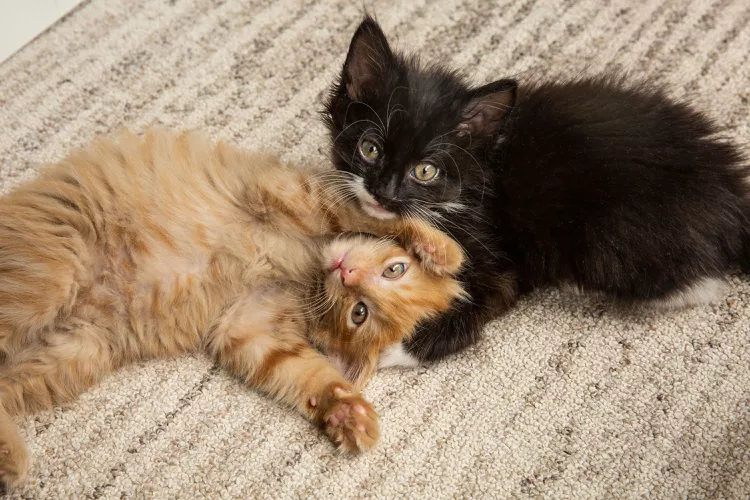
Why Two Kittens Are Better Than One
There are benefits of adopting two kittens, such as more feasible training and companionship between them.
Everything You Need to Know About Raising Your First Cat
Whether you are thinking about getting a cat or just adopted your first one, these are the things to know to make your relationship a lasting one.
How Can I Tell the Sex of a Cat?
Telling male and female cats apart can be difficult for those who don't know what they're looking for. Here are helpful tips to discover their sex.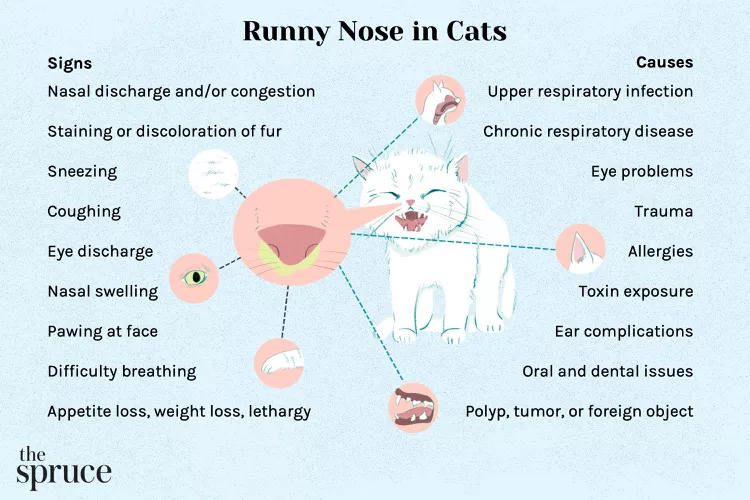
Runny Nose in Cats: Causes and Treatment
Cats get runny noses due to upper respiratory issues, but many conditions can cause this. Learn the causes of runny noses in cats and the associated signs. Find out how vets diagnose and treat cats with runny noses.
How Long Can You Safely Leave Canned Cat Food Out?
You cannot safely leave canned cat food out all day. Twenty to 30 minutes is the max, so give smaller portions and reheat food for later feedings.
Meat Byproducts in Cat Food
Most cat experts recommend premium brands of cat food that avoid ingredients like byproducts and chicken meal. Learn what to look for on the label.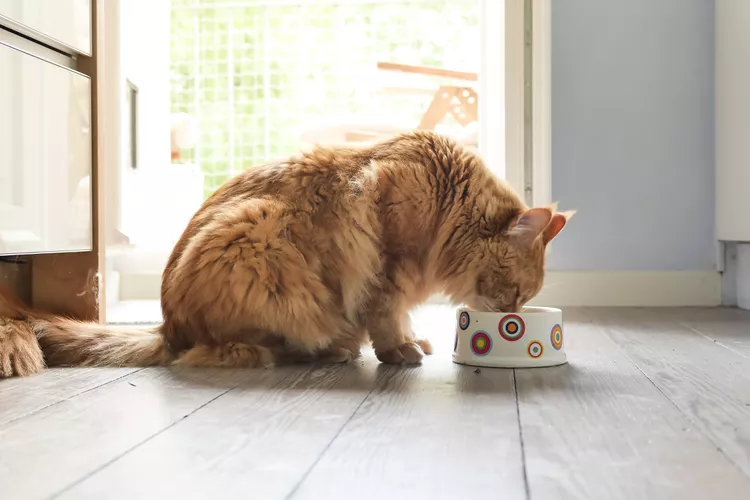
How Much Wet Food to Feed a Cat Every Day
The amount of wet food your cat needs depends on factors such as age, weight, body condition, and lifestyle. Learn how much wet food to feed your cat.
Taurine for Cats
Taurine is an essential animal protein in your cat's diet. Learn more about the various ways it supports your feline's body.
The Different Types of Pet-Friendly Workplaces
Discover the different types of pet-friendly workplaces and the benefits they offer employees. Learn how to create a pet-friendly workplace and the best practices for pet owners.
8 Halloween Safety Tips for Pets
The spooky holiday can be overstimulating and even dangerous for pets. Here's how to avoid the problems caused by toxic candy and incessant doorbells.
Why You Should Keep Cooked Bones Away From Your Dog This Holiday Season
People should be aware of the dangers of cooked bones, especially around the holidays when they might be more accessible to your pup.
Can Dogs Eat Squash? Here's What a A Vet Thinks
Dogs can safely eat squash as long as it's prepared correctly. Find out how to properly feed this versatile fruit to your dog.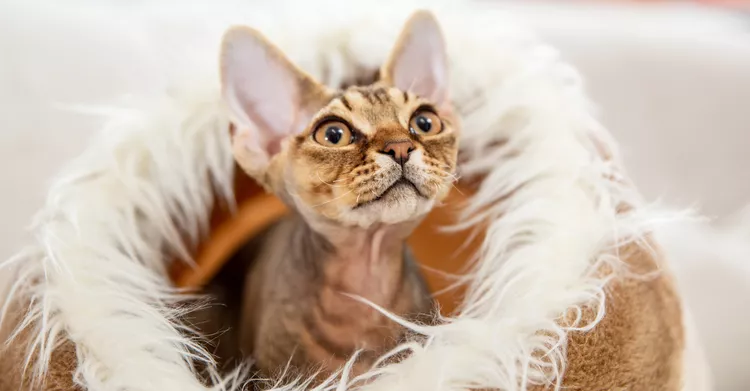
16 Small Cat Breeds That Are Petite Purring Machines
Small cat breeds like the Singapura and munchkin may be smaller than an average housecat, but they leave a giant imprint on your heart.
10 Best Cats With Big Ears
Cats with big ears often look extra endearing. Check out some common big-eared cats, including the Abyssinian, Devon Rex, Siamese, Sphynx, and more.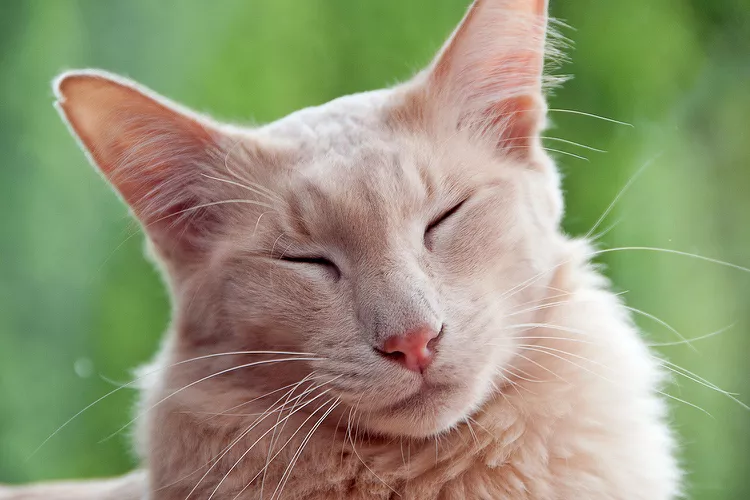
Javanese (Colorpoint Longhair): Cat Breed Profile, Characteristics & Care
The Javanese is a semi-longhaired, color-pointed cat of Siamese type. They are related to the Siamese, Colorpoint Shorthair, and Balinese breeds.
How to Stop Aggression in Dogs
Dog aggression can be a serious behavior issue for pet owners. Learn how to stop aggression in dogs before someone gets hurt.
Should Dogs Be Allowed on Furniture?
Should you let your dog on the couch or in the bed with you? Are there any reasons we should not let dogs on the furniture? Here's what to know.
Why Do Dogs Eat Rocks?
One of the most common non-food items for dogs to eat are rocks. Here's what to know about why dogs eat them and how can you stop your dog from eating rocks.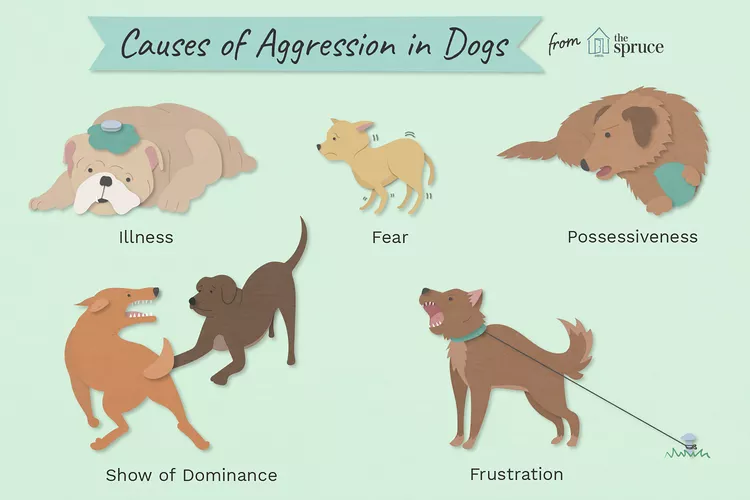
Why Dogs Get Aggressive and How to Stop It
Why is your dog biting you aggressively? Sometimes dogs can become aggressive with little warning. Find out what causes your dog to become aggressive so you can work with the behavior.
Thai Ridgeback: Dog Breed Characteristics & Care
Learn all about the Thai Ridgeback, a rare breed from Thailand. Find out how to care for the loyal dog and where to buy or adopt one.